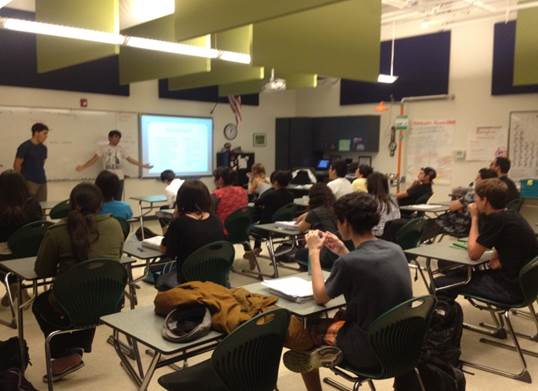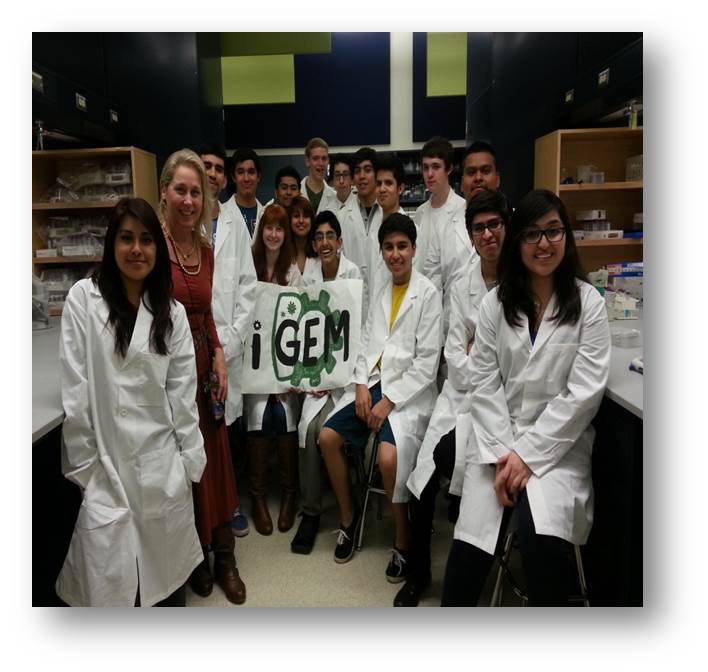Team:BioscienceDragons AZ/Human Practices/Bioscience High School
From 2013hs.igem.org
| Line 1: | Line 1: | ||
<html> | <html> | ||
| - | + | <link rel="stylesheet" href="https://2013hs.igem.org/wiki/index.php?title=User:Pestevan/style.css&action=raw&ctype=text/css" type="text/css"> | |
| - | + | <script language="javascript" type="text/javascript" src="https://2013hs.igem.org/wiki/index.php?title=User:Pestevan/jquery&action=raw&ctype=text/javascript"></script> | |
| - | + | <script lanaguage="javascript" type="text/javascript" src="https://2013hs.igem.org/wiki/index.php?title=User:Pestevan/jqueryui&action=raw&ctype=text/javascript"></script> | |
| - | + | <script language="javascript" type="text/javascript" src="https://2013hs.igem.org/wiki/index.php?title=User:Pestevan/bio.js&action=raw&ctype=text/javascript"></script> | |
<div id="header"> | <div id="header"> | ||
<ul id="nav"> | <ul id="nav"> | ||
Latest revision as of 12:50, 22 June 2013
Bioscience High School
The community aspect of our project mainly revolved around including our high school community within it. To begin, our school has an advanced laboratory which once housed the biotechnology class. Due to surrounding circumstances, the class was cut in the 2012-2013 school year and the lab was left with no purpose except for housing iGEM. It was then that our iGEM group took the initiative to continue biotechnology education for those still interested. We housed many students within our lab and held lab lessons on basic biotech protocols with the intention of keeping biotechnology alive within the school. The lessons would be for Juniors and Seniors due to the fact that underclassmen do not have yet the basic prerequisites of biology and chemistry needed to understand biotech, although there were a few proficient sophomores skillful enough to join. At the end of the year we gave presentations to the sophomores about this opportunity and joining the iGEM club their following year and what it would all entail!
Apart from keeping biotechnology flowing despite the lack of class, we have also taken an initiative to continue the curriculum over the years. While biotechnology cannot be its own standalone course anymore, we have developed a general curriculum that allows various classes to incorporate it into their core curriculum. Our school focuses on sciences, so besides the extinct biotech pathway, there exists the still living anatomy, wild life ecology, and engineering pathways. These three can easily incorporate biotechnology through our plan and have an integrated experience. We have communicated with the teachers our idea and as we keep polishing up the curriculum they are willing to learn from it and apply a more integrated approach to their courses.
The other integration we made with the school was the second stage of our project. After the synthetic biology aspect of creating the plasmids and transforming the bacteria successfully to express the solar harnessing and ethanol production abilities, comes giving the bacteria a real world application. Once having successfully talked to the engineering teachers, they have shown to be on board with the idea of having their students work on developing a biopanel (a solar panel type device to implement the developed bacteria into a setting where they can receive sunlight, produce ethanol, and process the ethanol through a distillation apparatus that will purify the biofuel. This would bring the project to a full loop and luckily the engineering class has agreed to help us achieve this. The biopanel also goes hand in hand with another one of their engineering projects, the XR3 vehicle. A vehicle the students are designing that will run on biofuels which will be a great complement to our project. So through all this we are making an impact within our school community, spreading education and forming partnerships with others on projects which is what the synthetic biology and iGEM spirit is all about!
 "
"

